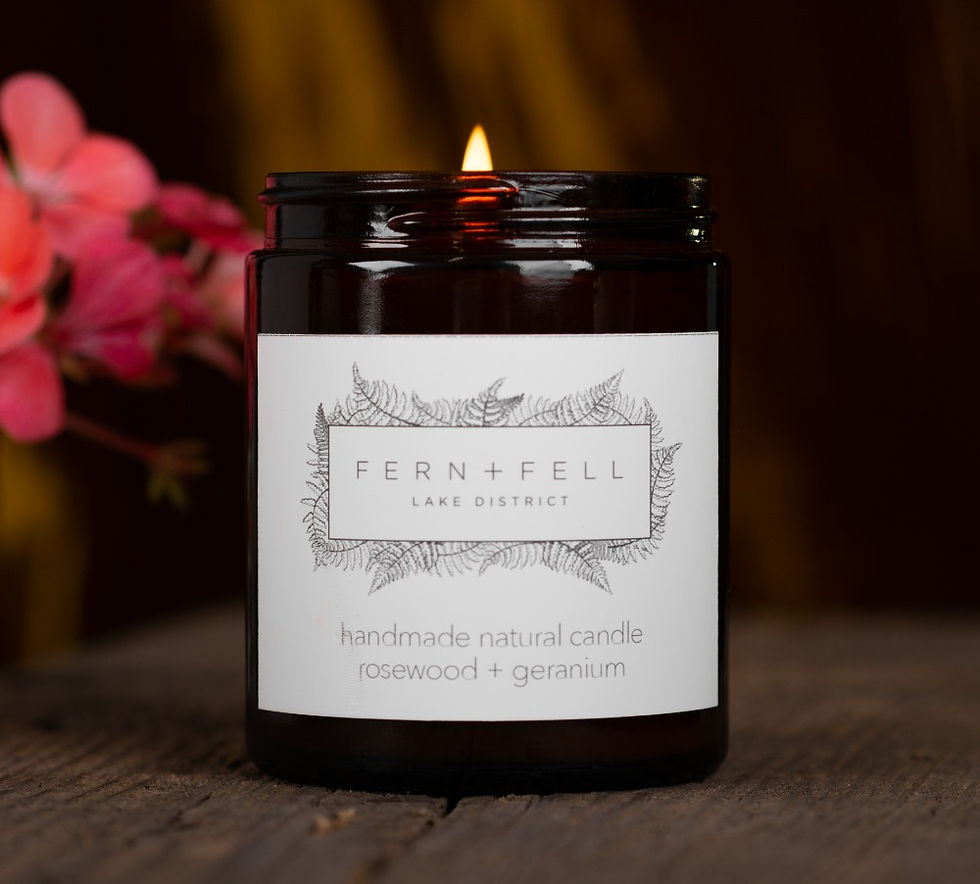5 natural ways to help anxiety
- Sharon Lomas

- May 16, 2023
- 5 min read

We all need a level of anxiety; our fight or flight response helps us stay aware of dangers and helps us calculate any risks we must take. But in modern life our fight or flight response is more likely to be triggered by a boss or a relative, a health issue or stressful life episode than it is being chased by a lion.
What is anxiety?
Anxiety is the natural way our body responds to feeling under threat. These feelings can manifest as physical symptoms such as:
Increased heart rate
Being unable to concentrate or focus.
Rapid breathing
Uneasy feeling/butterflies in stomach
Felling restless
Painful thoughts
Panic attacks
Frequent nightmares
From time to time, we all feel anxious and stressed, it is well documented that moving house, getting divorced or dealing with ill health top the charts for life's most stressful events. Outside of these situations problems can start when we feel overwhelmed by our day-to-day stress levels. When anxious feelings go unchecked and they can begin to affect every part of our lives. It can be a vicious cycle and we can feel trapped.
It happened to me. I was dealing with an appalling boss, working in a job I hated which I found unfulfilling and vacuous. I spent 12 years of a 17-year career unhappy. That's a long time, not far off a quarter of my life as I write this. Stress and anxiety took a toll both physically and mentally until finally I couldn’t take it anymore. This year I am celebrating 10 years since I ditched that toxic job and became my own boss.
Running a small business is never easy, and rarely free from stress or anxious moments, especially in these uncertain economic times. But I've become so much more in tune with with my mind & body, what I need and what works for me. My anxiety only subsides when I really focus in on myself, when I eat well, get outdoors and feel connected to nature. In this decade since I left my 9-5 job I have always made candles, it is something I always come back to in times of greater anxiety. Aromatherapy really works for me.

Everyone experiences anxiety at different levels, with different symptoms, which is why it is always wise to discuss treating your anxiety with your doctor. That said there are many natural techniques and copy strategies that can help you to help yourself. Making even small changes can make a huge difference too. Below are my top five ways that really help my anxiety and they may work for you.
5 ways to help anxiety, naturally
1. Move more
Regular exercise can really help your mental health, increasing physical exercise can help protect yourself against developing anxiety symptoms. Being out in nature daily can really help to draw the mind away from anxiety and feelings of overwhelm while connecting you to nature, it is proven to help support healthy mental & physical wellbeing.
Being in Woodlands especially works for me, I just love trees. I can go from meltdown to calm in less than ten minutes by heading into the woods. If you can, walk in forests or woodlands everyday for 20 mins this can really support your physical and mental wellbeing through this deeply immersive connection to nature experienced amongst trees. Forest Bathing or Shinrin Yoku as it is known in Japan, translates as immersing oneself in the atmosphere of the forest. Simply put, it means to be calm and quiet amongst the trees, observing nature while breathing deeply. It is a celebration of the awe and wonderment of nature. It works for me, I am so busy looking at the trees and inhaling their leafy goodness that my anxiety melts away.
If you can’t do every day, try 2-3 times a week or weekly. Studies have shown that the positive effects can last anywhere between 7 days and 30 days after a trip to the woods.

2. Cleanse your body
Limiting alcohol, caffeine, processed foods/sugar and eliminating artificial sweeteners, colours/flavours/preservatives from your diet is a great start to cleansing your body of mood-altering toxins. A 2018 study found that aspartame (artificial sweetener) was associated to anxiety, irritable moods, depression, and insomnia.
3. Water, water, water
Dehydration causes the brain functions to slow down, and research has linked dehydration to depression and anxiety. Not enough water and our brain recognises our state of hydration as a threat, a perceived threat which leads to the production of cortisol, which creates anxiety.
Being just half a litre dehydrated may cause cortisol production. Being dehydrated means we also struggle to get the chemicals needed for serotonin production, the happy chemical we need to fight away anxiety.
4. Sleep Well & Meditate
Easier said than done I know ( especially in my menopausal state), but prioritising sleep is one of the best things you can do to help your support positive mental health. Most adults don’t get enough sleep, our circadian rhythms are easily knocked out of sync by too much electronic distraction – TV/Phones/devices at night don’t help and the blue light they emit is disruptive to our body’s natural sleep patterns.
Having been a night owl most of my life I am now striving to be the early bird. For me, it's all about routine. At 8/8.30pm I light a candle and read. TV off. Then at 9-9.30pm I meditate for 20-30mins before going to sleep. This is really helping me to wake up earlier and start my day with a 20min morning meditation. I never thought a mind as busy as mine would ever be able to quieten down long enough to meditate, but it has. I started with 5 minutes morning and night and I can now meditate for about an hour. It just takes practise and not judging yourself too harshly if it doesn't come easily, or immediately.

5. Aromatherapy
Aromatherapy has been practised all over the globe for thousands of years. Most cultures have rich traditions of using natural plant extracts and essential oils to holistically treat all manner of ailments for both physical and mental conditions, anxiety being one of them.
Essential oils are mainly used aromatically (inhaled) or topically (diluted as oils and creams). Olfactory signals (our sense of small) are processed incredibly fast and can immediately transport us to a place in time and trigger a deep memory. The speed in which our brains process fragrance signals mean Aromatherapy can potentially offer some immediate relief from symptoms.
Before I started FERN+FELL I was always obsessed with the smell of Basil and loved the smell of Geraniums. Turns out that both contain a compound called linalool ( also found in Lavender) which has a natural sedative effect helping to calm our nervous system while decreasing symptoms of anxiety and stress. Perhaps this is why Rosewood + Geranium is my best selling candle.

This week is National Mental Health Awareness week, for more information about dealing with anxiety visit MIND




Comments